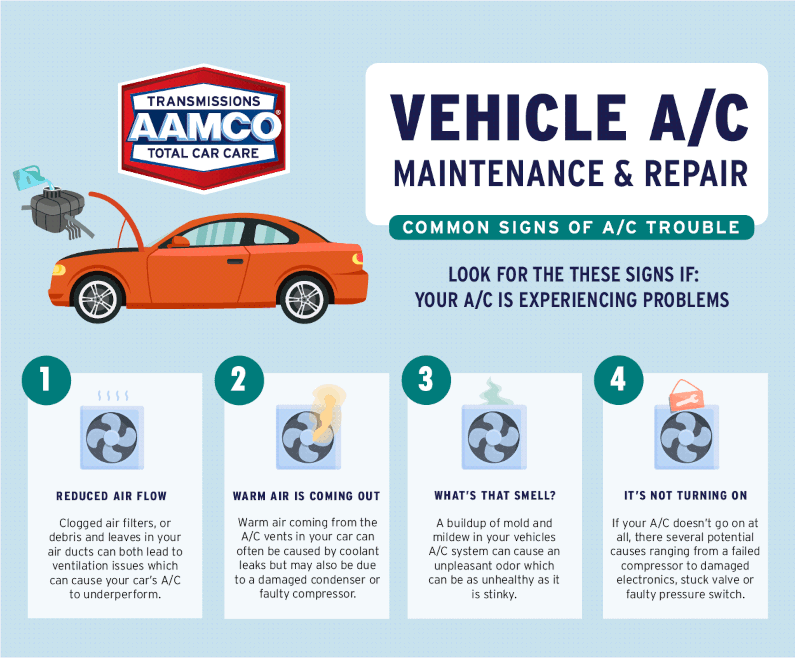Your car AC compressor may not turn off due to a faulty relay or an issue with the pressure switch. Overcooling or electrical problems could also be culprits.
Understanding why your car’s AC compressor refuses to disengage is crucial for maintaining a comfortable and efficient ride. A compressor that runs continuously can lead to increased wear and tear, higher fuel consumption, and an overworked air conditioning system. This can shorten the lifespan of the compressor and other AC components, leading to costly repairs.
Early detection of the problem can save time and money, ensuring your vehicle stays cool without unnecessary strain on the engine or your wallet. Addressing this issue promptly can prevent further damage to your car’s air conditioning system and keep you driving in comfort.
Introduction To Car Ac Compressor Functionality
Your car’s AC compressor serves as the heart of the air conditioning system. This vital component regulates the flow of refrigerant throughout the system. It maintains cabin comfort. A fully functional compressor is key to a cool and comfortable ride.
The Role Of The Compressor In Car Ac Systems
The compressor’s job is to pressurize the AC system’s refrigerant. It circulates the refrigerant. It changes from a gas to a liquid as it moves. This process is crucial for heat exchange. It cools the air before it enters your vehicle’s cabin.
Common Indicators Of Compressor Issues
- Continuous Operation: The compressor does not cycle off.
- Warm Air: Vents blow warm air instead of cold.
- Strange Noises: Knocking or squealing sounds come from the AC unit.

Credit: m.youtube.com
Potential Reasons For Continuous Compressor Operation
Is your car’s AC compressor always on? This is not usual. Let’s explore why this might happen.
Faulty Pressure Switches
Your car has pressure switches. They tell the AC when to turn on and off. If they break, the AC can’t stop. It’s like a light with a broken switch. It stays on. Mechanics can check and replace these switches.
Stuck Ac Compressor Clutch
The compressor has a clutch. It connects or disconnects the power. Sometimes, this clutch sticks. Then, the compressor won’t stop. It’s like a bike pedal that keeps moving, even when you don’t want it to. A stuck clutch needs fixing or replacing.
Thermostat Problems
The thermostat controls the temperature. If it has issues, your AC might not turn off. It’s like a thermostat in your house set too cold. It makes the AC work all the time. A broken thermostat needs a check-up.
- Check pressure switches.
- Inspect the AC compressor clutch.
- Examine the thermostat.
Remember, these are common issues. Your car might have a different problem. Always ask a pro for help.
Electrical Issues Leading To Compressor Malfunction
Electrical issues can often cause a car’s AC compressor to stay on. The compressor is crucial for cooling your car. It should cycle on and off. If it doesn’t, the problem might be electrical. Let’s explore common electrical faults that could lead to compressor malfunction.
Wiring Faults And Short Circuits
Wiring is like the veins of your car’s electrical system. It carries power everywhere. If there’s damage, the compressor may not turn off. Wiring faults and short circuits can cause this. Animals chewing wires, age, or accidents can damage wiring. This can make the compressor run non-stop.
- Check wires near the compressor for damage.
- Look for exposed or frayed wires.
- Inspect for burn marks that indicate short circuits.
Fuses And Relay Complications
Fuses protect your car’s electrical parts. A blown fuse might cause compressor issues. The relay is like a messenger. It tells the compressor when to turn on and off. A faulty relay could make the compressor stay on. Check these parts if your compressor won’t stop.
| Part | Function | Sign of Fault |
|---|---|---|
| Fuse | Protects circuit | Dark or broken metal strip inside |
| Relay | Controls compressor | Constant clicking noise or silence |
Replace any blown fuses. Test the relay with a multimeter. If either is faulty, they’re likely culprits. Your mechanic can help with these issues.
Refrigerant Levels And Their Impact On Ac Compressor
The AC compressor in your car is crucial for cooling. It pressurizes the refrigerant to absorb heat from the car’s interior. Proper refrigerant levels are key to its function. Incorrect amounts can cause the compressor to run non-stop.
Overcharging And Undercharging Effects
Overcharging the system can lead to increased pressure. This causes the compressor to work harder. It may not turn off as it should. Undercharging means there’s not enough refrigerant. The compressor might run continuously to try to reach the desired cooling.
How To Check Refrigerant Levels
To check refrigerant levels, follow these steps:
- Locate the low-pressure port. It’s often on the passenger side of the engine bay.
- Use a refrigerant gauge. Connect it to the port.
- Start the engine and set the AC to max cool.
- Read the gauge. Compare the pressure to recommended levels.
If levels are off, a professional service is recommended. They can adjust the refrigerant accurately.
Climate Control Settings And User Errors
Understanding why your car’s AC compressor won’t turn off is key. Often, the issue ties back to climate control settings or user errors. Let’s explore two common mistakes that can cause this problem.
Misinterpretation Of Auto Mode
Many drivers misunderstand the auto mode on their AC. This setting automatically adjusts the fan speed and temperature. It aims to maintain your set comfort level. Yet, it might keep the compressor running longer than expected. This is to ensure the interior climate meets your settings.
Inappropriate Temperature Settings
Setting the temperature too low can also cause issues. The compressor works harder to reach the set temperature. If it’s a hot day, reaching a very low temperature inside the car might be impossible. This keeps the compressor running continuously. Always choose a realistic temperature setting relative to the outside weather.
- Check the manual for your AC’s auto mode explanation.
- Adjust the temperature to a more moderate setting.
- Monitor the compressor’s behavior after making these changes.

Credit: www.aamcoblog.com
Quick Diagnostic Steps
When a car AC compressor stays on, it’s a sign of trouble. Quick checks can reveal the cause. Start with these simple diagnostic steps to pinpoint the issue. Follow these tips for a visual inspection and listening test. They help identify common problems with car AC systems.
Visual Inspection Tips
- Check the AC compressor clutch. It should engage and disengage properly.
- Examine electrical connections. Loose wires can cause constant operation.
- Inspect the refrigerant level. Both low and high levels can affect the compressor.
- Look for signs of damage. Physical wear can prevent the compressor from turning off.
Listening For Unusual Noises
- Turn on the AC and listen. A healthy system runs quietly.
- Listen for clicking sounds. They may indicate a faulty compressor clutch.
- Pay attention to hissing or bubbling. This could signal a refrigerant leak.
- Notice any grinding noises. They suggest internal compressor damage.
Remember, early detection is key to fixing your AC issue effectively.
Practical Fixes You Can Attempt
Is your car’s AC compressor running non-stop? This can lead to bigger issues. But don’t worry! Some fixes are easy to try yourself. Before you head to a mechanic, check out these practical solutions to solve the problem.
Replacing The Ac Relay
The AC relay is a common culprit. It’s a small part but has a big role. When it fails, the compressor won’t turn off. Here’s a quick guide to replace it:
- Locate the relay: Find it in the fuse box under the hood.
- Remove the old relay: Pull it out carefully.
- Insert the new one: Push in the replacement firmly.
- Test the system: Start the car and check the AC.
Resetting The Ac System
Sometimes, a simple reset does the trick. Follow these steps to reset your AC system:
- Turn off the engine: Safety first!
- Remove the fuse: Take out the AC fuse for a minute.
- Replace the fuse: Put it back in its slot.
- Start the engine: Turn on the AC to see if it worked.
When To Seek Professional Help
Your car’s AC compressor is a vital component. It keeps the cabin cool. Sometimes it won’t turn off. This can lead to bigger issues. Knowing when to seek professional help is crucial. Specialists can diagnose and fix complex problems. They ensure your system works perfectly.
Complex Electrical Troubleshooting
Car AC systems are intricate. They have complex wiring. A malfunctioning compressor may be due to electrical issues. Signs of electrical faults include:
- Fuses blowing repeatedly
- AC controls not responding
- Strange noises when AC is running
Auto electricians have the tools to find the fault. They can fix wiring problems. They ensure your AC runs smoothly.
Compressor Replacement And System Overhaul
Sometimes, the compressor needs replacement. This is a big job. It involves:
- Removing the old compressor
- Installing a new one
- Refilling the refrigerant
Technicians can perform a system overhaul. They check for leaks. They replace old parts. They make sure the system is sealed.
Don’t ignore a compressor that won’t shut off. It can lead to high repair costs. Contact a professional. They will get your AC working right.
Preventive Maintenance To Avoid Future Issues
Preventive maintenance can save your car’s AC compressor. It stops big problems before they start. Car owners should know this. Follow simple steps to keep your AC running smooth.
Regular Ac System Checks
Checking your AC system is crucial. Do it often. It’s like a health check for your car. Spot issues early. This approach stops bigger problems later.
- Inspect belts and hoses for wear
- Check refrigerant levels regularly
- Test compressor performance
- Clean filters for better airflow
Importance Of Professional Servicing
Professional servicing is a must. Experts find problems you might miss. They use advanced tools. They understand complex systems. Trust them for thorough checks.
| Service | Benefits |
|---|---|
| Professional diagnostics | Precise problem identification |
| Expert repair | Reliable fixes, peace of mind |
| Regular maintenance | Longer AC life, better efficiency |

Credit: www.supertechhvac.com
Conclusion: Ensuring Cool Comfort On The Road
Driving with a cool breeze makes every trip better. Sometimes, your car’s AC compressor won’t turn off. This can be annoying. But, don’t worry! We have some tips to keep you cool on the road.
Summary Of Quick Fixes
- Check the AC system’s fuse. Replace it if needed.
- Clean the AC’s relay switch. It might stick sometimes.
- Reset your car’s climate control settings.
- Look at the coolant levels. Fill them up if they’re low.
The Value Of A Fully Functional Ac System
A good AC system in your car means a lot. It keeps you cool and comfortable. It also makes sure you don’t sweat on your way. A working AC helps you focus on driving. This is very important for safe travels.
| Problem | Quick Fix |
|---|---|
| AC won’t turn off | Check fuse and relay |
| Hot air blowing | Refill coolant |
| Noisy AC | Inspect belt and replace |
Remember, these tips are here to help. They can make your ride smooth and cool. Enjoy every drive, no matter how hot it is outside!
Frequently Asked Questions
What Causes A Car Ac Compressor To Stick On?
A car AC compressor may continuously run due to a faulty relay, stuck thermostat, electrical issues, or a malfunctioning pressure switch.
How Can I Troubleshoot A Non-stop Ac Compressor?
Begin by checking the compressor relay and pressure switch, then inspect the electrical connections and the vehicle’s thermostat for proper operation.
Can A Defective Car Battery Affect The Ac Compressor?
Yes, a weak or failing car battery can lead to irregular power supply, potentially causing the AC compressor to malfunction.
What Are Common Signs Of Ac Compressor Failure?
Symptoms include irregular cooling, strange noises, and the AC compressor not engaging or disengaging properly.
How Often Should A Car Ac Compressor Cycle?
A properly functioning car AC compressor should cycle on and off to maintain the desired cabin temperature, typically every few minutes.
Conclusion
Understanding why your car’s AC compressor won’t turn off is crucial for maintaining your vehicle’s health. This issue, if not addressed, can lead to significant damage and costly repairs. Remember, regular checks and early intervention are your best defenses. Keep your car cool and functional by tackling this problem head-on, ensuring a smoother, more enjoyable ride.

















